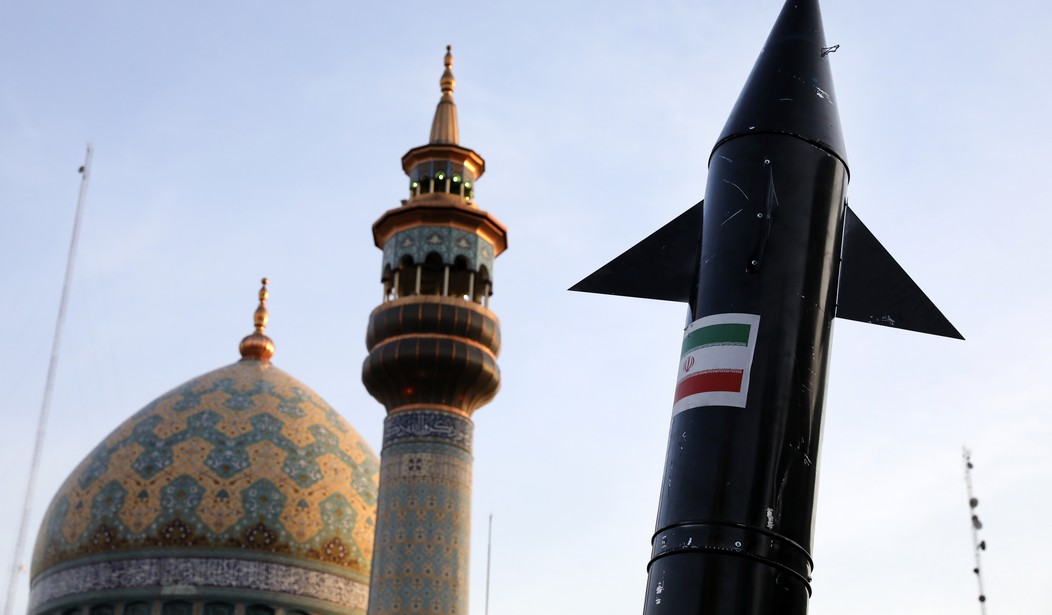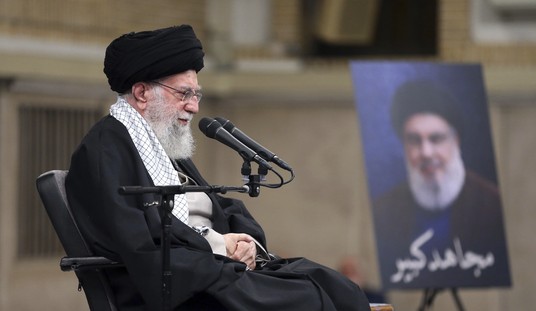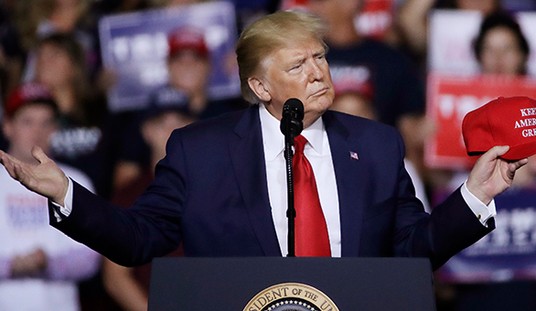In the Red Sea, a Greek-flagged oil tanker is burning.
Houthi militants might have carried out the maritime attack, but ultimate responsibility for their campaign of terror resides elsewhere.
Iran.
After eleven months of Middle East instability fomented by Iranian proxies, the Biden administration has yet to send the Islamic Republic’s leadership a message they can’t ignore. The two carrier strike groups currently patrolling in the Gulf of Oman certainly possess the necessary martial means. Whether President Biden can summon the requisite will to act remains to be seen. But questions of presidential fortitude aside, there is a contingency which would completely reshape this debate.
The existence of an Iranian nuclear weapon.
In a CNN article dated July 19th, 2024 US Secretary of State Anthony Blinken stated that Iran could produce the weapons grade material needed to manufacture a nuclear bomb in “probably one or two weeks.” According to the same article, Blinken’s “assessment marks the shortest breakout time that US officials have ever referenced.” The accuracy of Blinken’s estimate can be debated.
The conclusion sparked by his remarks cannot.
Tehran is now on the brink of nuclear breakout.
But does a nuclear armed Iran truly represent an existential threat to both the Middle East and the world?
The Democratic People’s Republic of Korea, more commonly known as North Korea, demonstrably crossed the atomic threshold in 2006 after successfully testing an operational nuclear warhead. The nation’s current dictator, Kim Jong Un, is the successor to a familial dynasty that has maintained an iron grip on power since 1948 by imprisoning or executing political rivals and brutally repressing North Korean citizens. Under the Kim dynasty’s leadership, North Korea has conducted provocative ballistic missile tests, engaged in military skirmishes with its rival, the Republic of Korea (South Korea), and most crucially, assembled an estimated fifty nuclear warheads.
Recommended
No honest broker would ascribe benign intentions to the Kim government, but the 1953 armistice agreement which instituted an uneasy peace between the two Koreas remains in place. Despite access to weapons of mass destruction and a demonstrated willingness to use violence to ensure its survival, the Kim Dynasty has not engaged in a conventional war with its southern neighbor or employed its nuclear arsenal.
Perhaps the Biden administration hopes that a nuclear-equipped Iran might embrace similar restraint.
If so, this hope is misplaced.
Kim Jong Un is most concerned with solidifying his grip on power and maintaining his nation’s territorial integrity. His nuclear arsenal serves as an insurance policy that safeguards his rule by inoculating his nation against the threat posed by conventional military attacks. Accordingly, Kim is primarily focused inward, toward the dangers real or imagined embodied by elements within his government and citizenry.
By contrast, the Shia mullahs who rule Iran are primarily focused outward.
Iranian paramilitary operatives and proxies have targeted American and Israeli interests across the globe since the 1983 terrorist bombing of the US Marine barracks in Beirut, Lebanon. In recent years, Iranian Republican Guard Corps members have provided Iraqi Shia militias with the means to kill US servicemembers via Iranian designed and manufactured explosively formed penetrators, aided the genocidal Syrian government’s brutal repression of its own people, trained and funded the Hamas terrorists who carried out the heinous October 7th attacks, and for the first time, directly targeted Israel with a barrage of killer drones and ballistic missiles. US intelligence agencies continue to warn of a credible Iranian plot to assassinate former President Donald Trump and other key members of his administration.
These are not the actions of a regime content to coexist with the rest of the world.
Even so, engaging in conventional attacks is not the same as employing a nuclear weapon. The doctrine of Mutually Assured Destruction helped deter the use of atomic weapons during the Cold War. Perhaps the threat of a retaliatory nuclear strike from Israel or the United States would dissuade Tehran from employing its own atomic bombs.
Princeton University professor emeritus of Near Eastern Studies Bernard Lewis believes otherwise.
Lewis famously characterized the worldview espoused by Iran’s ruling theocracy as “apocalyptic” driven by a belief that “cataclysmic events” will precipitate a final battle between good and evil. Former Iranian President Mahmoud Ahmadinejad validated Lewis’s analysis when he called for the “elimination of the Zionist regime.” More recently, the Islamic Republic’s current Supreme Leader, Ali Khamenei, stated that Iran would be subject to “divine wrath” if his nation did not retaliate against Israel for the assassination of a Hamas political leader. If Iran’s leadership truly believes that bringing about Armageddon is a necessary step toward fulfilling a messianic prophecy, a nuclear arsenal is no longer an insurance policy against conventional military attacks.
Instead, it becomes a means to fulfill a perceived national destiny.
To date, Iranian threats have proven to be more than just empty rhetoric. From Houthi attacks against commercial shipping in the Red Sea, to rockets launched at Americans stationed at Al Asad airbase in Iraq, Iranian paramilitary operatives and their proxies continue to transform Tehran’s inflammatory words into deeds. Although this past performance is a powerful indication of future behavior, we cannot conclude with complete certainty what the Iranians would do with a nuclear arsenal.
Neither can we precisely determine when Tehran will reach nuclear breakout.
Maybe we shouldn’t try.
Instead, our elected leaders might be better served by focusing on a more pertinent scenario—the Iranians intend to build an atomic bomb.
What does President Biden intend to do to stop them?
Don Bentley is the New York Times bestselling author of the new Vince Flynn novel starring Mitch Rapp, Capture or Kill. Don is also a former FBI Special Agent, SWAT team member, and Army Apache helicopter pilot. Learn more at DonBentleyBooks.com.

























Join the conversation as a VIP Member